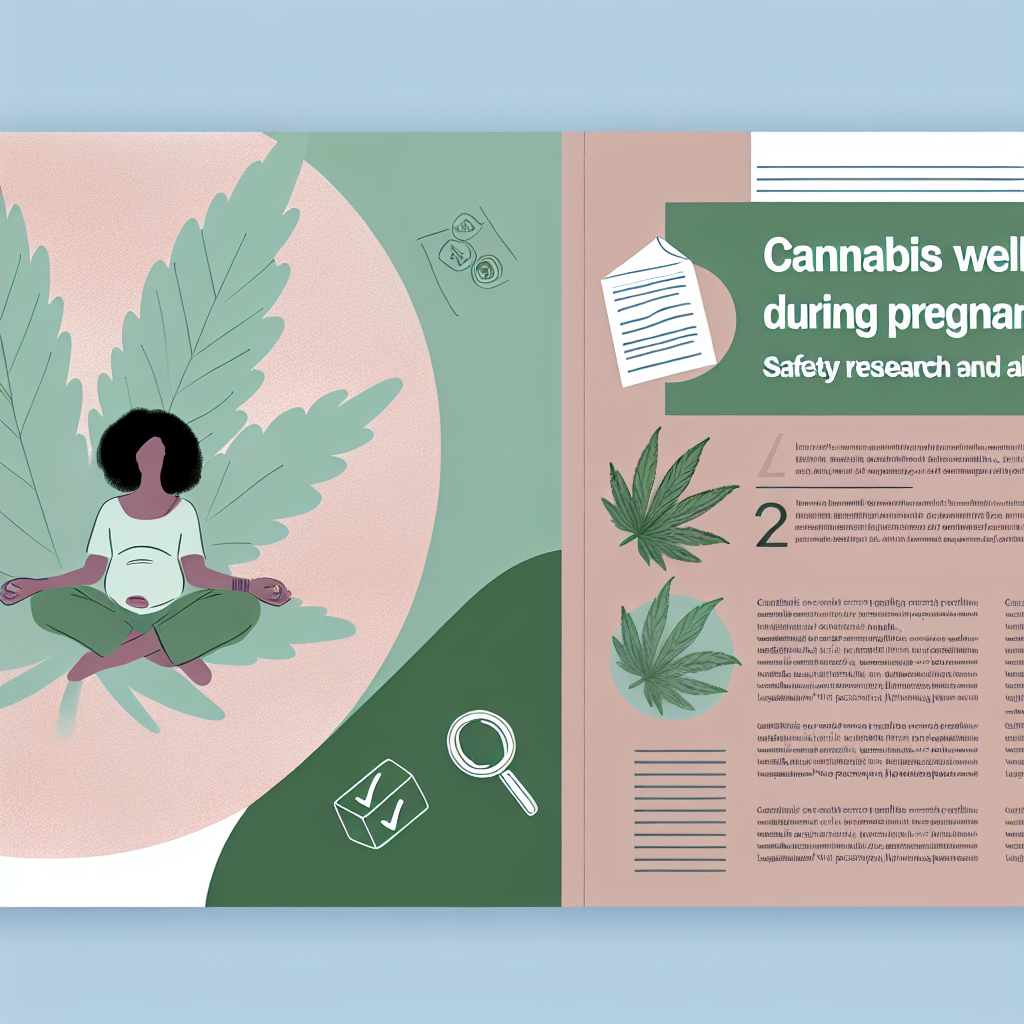# Cannabis Wellness During Pregnancy: Safety Research and Alternatives
As legalization expands and wellness trends rise, many pregnant individuals are considering cannabis for symptom relief. But how safe is it? Here’s what the current science says — and what to consider instead.
Breaking the Stigma: Why Cannabis Use During Pregnancy is a Growing Conversation
As the cultural stigma surrounding cannabis continues to evolve, so too has interest in its potential therapeutic benefits. More people are turning to cannabis for relief from chronic pain, nausea, anxiety, and sleep disturbances. Among those exploring cannabis as an option are pregnant women, many of whom experience debilitating nausea, heightened stress, or insomnia during gestation.
As legalization grows across North America and beyond, candid conversations about cannabis use during pregnancy are increasingly important. Both consumers and healthcare professionals face complex questions regarding its safety, efficacy, and alternatives — but clear, research-based answers remain elusive.
Historically, cannabis was used in various cultures to ease labor or mitigate morning sickness. Today, it is more accessible than ever. From gummies and tinctures to topicals and vape cartridges, cannabis-based products line dispensary shelves as natural wellness solutions. For someone dealing with relentless morning sickness or pregnancy insomnia, turning to cannabis may feel like a logical alternative to pharmaceutical interventions.
Yet despite this widespread use, the medical community is far from unanimous. Many healthcare providers advise against cannabis use during pregnancy, emphasizing the lack of conclusive long-term safety data. Consumers now find themselves at the intersection of evolving social trends, uncertain science, and the urgency of pregnancy wellness.
Current Research: What the Science Tells Us About Prenatal Cannabis Risk
Studies examining cannabis use during pregnancy have yielded mixed but cautionary results. Several peer-reviewed studies point to potential adverse outcomes associated with consistent cannabis usage during gestation.
A notable 2020 study published in JAMA Psychiatry found that prenatal cannabis exposure was associated with increased attention, social, and behavioral problems during middle childhood. [Read the study]
Additionally, according to the National Institute on Drug Abuse (NIDA), the primary psychoactive component in cannabis — THC — crosses the placenta and can affect fetal brain development. Disruptions in the endocannabinoid system, which is instrumental in fetal brain development, may be a key concern. [More here]
A 2019 large-scale review published in Obstetrics and Gynecology looked at over 600,000 pregnancies. The findings linked prenatal cannabis exposure to increased risks of low birth weight, preterm delivery, and higher admission rates to neonatal intensive care units (NICU). [(Study link)]
Critics caution that many of these studies struggle with confounding variables, including tobacco or alcohol use, socioeconomic status, and access to healthcare. More targeted research is needed to isolate the effects of cannabis-only use in pregnancy.
Nonetheless, the prevailing consensus among leading health authorities — including the American College of Obstetricians and Gynecologists (ACOG) and the Centers for Disease Control and Prevention (CDC) — is to avoid cannabis during pregnancy due to its unverified safety. [ACOG Guidelines]
Exploring Safer Options: Natural Remedies and Wellness Practices
While some pregnant individuals may turn to cannabis in search of relief from symptoms like nausea, anxiety, or insomnia, it’s worth considering safer and better-studied alternatives.
Some of these include:
– 🌿 Ginger supplements – Known for easing nausea and morning sickness.
– 💊 Vitamin B6 and doxylamine – Often prescribed for pregnancy-induced nausea.
– 🧘♀️ Prenatal yoga and meditation – Can improve sleep, decrease stress, and support physical well-being.
– 🌱 Acupuncture and acupressure – May reduce morning sickness and improve energy levels.
– 🧠 Cognitive behavioral therapy (CBT) – Proven to help manage anxiety and mood instability during pregnancy.
One increasingly popular compound is CBD (cannabidiol), a non-psychoactive component of cannabis touted for its relaxing effects. But current FDA recommendations caution against CBD use during pregnancy due to a lack of safety research. [FDA CBD Guidance]
It’s important for consumers — and cannabis professionals — to approach these decisions with informed skepticism. Just because a compound is “natural” or legally available does not equate to safety during pregnancy.
Responsible Advocacy: What Cannabis Industry Professionals Should Know
For dispensaries and wellness professionals, pregnancy presents a unique set of challenges and responsibilities. Pregnant clients seeking relief from severe symptoms deserve compassionate, fact-based conversations — not assumptions or stigma.
As a cannabis professional:
– Always encourage pregnant clients to speak with a qualified healthcare provider.
– Stay updated with scientific research and reputable guidelines (ACOG, CDC, FDA).
– Avoid marketing cannabis or CBD products specifically toward pregnant individuals.
– Offer information about non-THC options but clarify existing knowledge gaps and recommendations.
Promoting safe maternal wellness means balancing empathy, regulation, and transparency. As much as cannabis can offer promise in many areas of healthcare, pregnancy is an especially sensitive time requiring an abundance of caution.
Conclusion: Cannabis and Pregnancy — Proceeding With Care
Cannabis is often viewed as a natural wellness tool — but during pregnancy, nature must be tempered with evidence. While anecdotal and historical reports suggest potential benefits, today’s scientific consensus urges caution. Prenatal cannabis use may pose risks to fetal neurodevelopment and maternal health outcomes, and more research is needed before it can be considered safe.
For now, pregnant individuals seeking relief are encouraged to pursue well-established alternatives like ginger, prenatal yoga, and behavioral therapy. Cannabis professionals, meanwhile, have a critical role to play in guiding clients with honesty, nuance, and respect.
With further research, the landscape may shift. Until then, informed choices and open dialogue remain the best tools in supporting both maternal and fetal well-being.
References
- JAMA Psychiatry (2020): Associations Between Prenatal Cannabis Exposure and Childhood Outcomes
- National Institute on Drug Abuse: Marijuana Use and Pregnancy
- Obstetrics and Gynecology (2019): Prenatal Cannabis Exposure and Infant Outcomes
- FDA Consumer Update: Cannabis and CBD Use During Pregnancy
- American College of Obstetricians and Gynecologists (ACOG): Marijuana Use During Pregnancy and Lactation
Concise Summary:
As cannabis legalization and wellness trends rise, many pregnant individuals are considering cannabis for symptom relief. However, current research suggests potential risks to fetal development, and leading health authorities advise against cannabis use during pregnancy. This article explores the current scientific consensus, safer alternative remedies, and the responsibilities of cannabis professionals in guiding pregnant clients.




